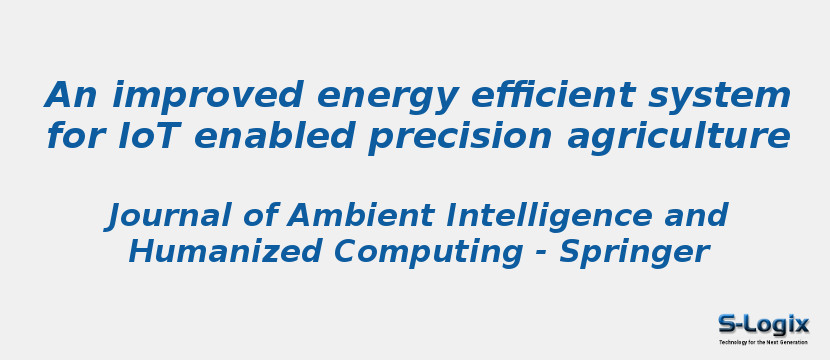Research Area: Wireless Sensor Networks
Energy efficiency in wireless sensor network is a well studied research problem. A recent research study on IoT based precision agriculture has reported that designing the energy efficient data aggregation at the base station is an open research problem. The paper is motivated by recent developments in the energy efficient models and algorithms to maintain energy requirement at the base station. The base station is energy constrained device and it has to survive maintaining the energy requirements from various sensors and gateway modules. Therefore base station uses energy harvesting to maintain energy neutrality. There are two important research questions to study; how to estimate the solar energy to maintain the energy neutrality at the base station having solar backup for energy harvesting and how to estimate the energy requirements at the base station at random point of time. The first question has been answered quite extensively. In this paper, we are trying to address the second question of how to estimate the energy requirements at the base station of IoT enabled precision agriculture. In precision agriculture, numerous types of sensors including soil, moisture, temperature, wind direction, wind speed, camera, drone etc. are used to continuously monitor the field and connect to the base station. Hence base station has different modes of power requirements such as low power, medium power, and high power modes based on different types of wireless communication medium at random point of time. The paper proposes a novel product density model to estimate the energy requirements at the base station. Moreover, an Improved Duty Cycling algorithm is proposed using residual energy parameter. The performance of the proposed Improved Duty Cycling is compared with two other algorithms and the proposed algorithm shows an improvement in terms of average energy consumption, residual energy performance, throughput etc.
Keywords:
Author(s) Name: Himanshu Agrawal, Ruchi Dhall, K. S. S. Iyer & Vijayalakshmi Chetlapalli
Journal name: Journal of Ambient Intelligence and Humanized Computing
Conferrence name:
Publisher name: Springer
DOI: 10.1007/s12652-019-01359-2
Volume Information: volume 11, pages 2337–2348 (2020)
